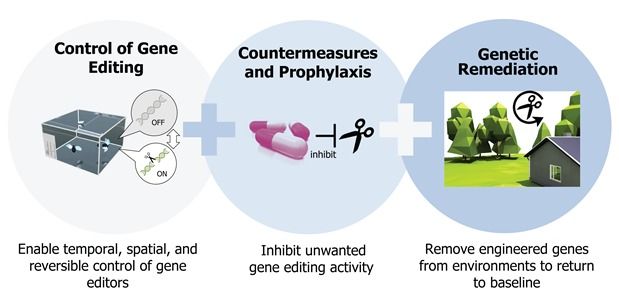This is actually pretty significant to see from DARPA; however, not a total shock given the importance of Synthetic Biology and various parties in the military understanding how CRISPR can be used as a weapon.
A new DARPA program could help unlock the potential of advanced gene editing technologies by developing a set of tools to address potential risks of this rapidly advancing field. The Safe Genes program envisions addressing key safety gaps by using those tools to restrict or reverse the propagation of engineered genetic constructs.
“Gene editing holds incredible promise to advance the biological sciences, but right now responsible actors are constrained by the number of unknowns and a lack of controls,” said Renee Wegrzyn, DARPA program manager. “DARPA wants to develop controls for gene editing and derivative technologies to support responsible research and defend against irresponsible actors who might intentionally or accidentally release modified organisms.”
Safe Genes was inspired in part by recent advances in the field of “gene drives,” which can alter the genetic character of a population of organisms by ensuring that certain edited genetic traits are passed down to almost every individual in subsequent generations. Scientists have studied self-perpetuating gene drives for decades, but the 2012 development of the genetic tool CRISPR-Cas9, which facilitates extremely precise genetic edits, radically increased the potential value of—and in some quarters the demand for—experimental gene drives.
